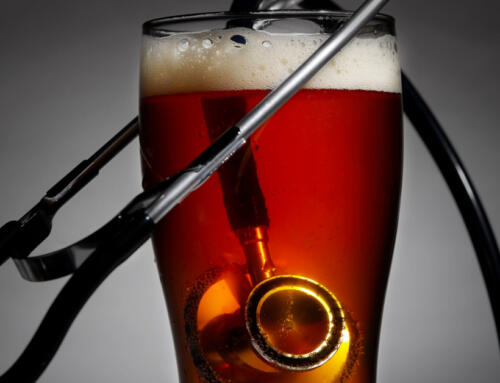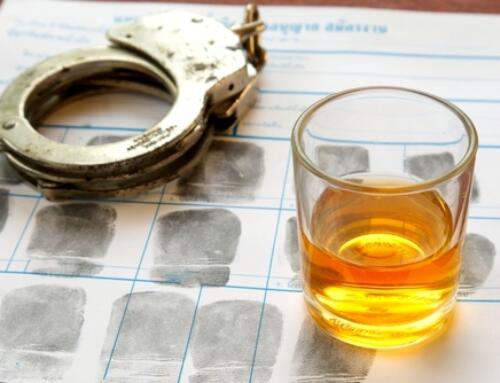In Pennsylvania, driving under the influence of drugs is a serious crime. Prosecuted as a type of DUI (commonly referred to as a “drug DUI”), driving under the influence of drugs can carry up to a $5,000 fine, six months in jail, a 12-month driver’s license suspension, and other penalties for a first-time offense.
If you are facing a drug DUI charge in Pennsylvania, there is a lot you need to know. Here is a brief introduction from Philadelphia DUI defense attorney Brian Fishman:
1. The Crime of Driving Under the Influence of a Controlled Substance
Driving under the influence of a controlled substance is a criminal offense under Section 3802(d) of the Pennsylvania Statutes. This section of the law makes it illegal to drive, operate, or be in actual physical control of a vehicle if:
- You have any amount of a Schedule I controlled substance in your blood;
- You have any amount of a Schedule II or Schedule III controlled substance in your blood (unless you have a subscription for the drug);
- You have a metabolite of a Schedule I, II, or III controlled substance in your blood (unless subscribed);
- You are under the influence of any drug or combination of drugs (including alcohol), “to a degree which impairs [your] ability to safely drive, operate or be in actual physical control of the movement of the vehicle;” or,
- You are under the influence of a solvent or other substance in violation of Section 7303 (which prohibits inhaling fumes or vapors for their intoxicating or inebriating effects).
Schedule I controlled substances include bath salts, ecstasy (MDMA), heroin, LSD, marijuana, and Quaaludes. Common Schedule II controlled substances include Adderall, cocaine, Demerol, fentanyl, hydrocodone, hydromorphone, methadone, methamphetamine, and Ritalin. Common Schedule III controlled substances include anabolic steroids, codeine, ketamine, and testosterone.
As you can see from the list above, there are potentially two ways you can be charged with a drug DUI in Pennsylvania. The first is what is known as a per se violation. If you have any amount of Schedule I, III, or III drugs in your blood (unless you have a valid prescription for a Schedule II or III drug), then you violate Section 3802(d). For a per se violation, prosecutors do not need proof that you were legally impaired—if you have a prohibited drug in your system, you are guilty of a drug DUI.
The second way you can be charged with a drug DUI in Pennsylvania is based on impairment. If any drug impairs your driving ability, this can also support a drug DUI charge under Section 3802(d). This applies to prescription and over-the-counter drugs listed in Schedules II, III, IV, and V.
2. The Police Can Test for the Presence of Drugs and Drug Impairment in Several Ways
While it is not possible to detect drugs in a person’s system with a Breathalyzer, the police can still test for the presence of drugs and drug impairment in several ways.
The first way the police will usually test a person suspected of driving under the influence of drugs is by performing field sobriety tests (FSTs). You are not required to submit to the FSTs in Pennsylvania, but your performance on these tests can be used against you if you do. Police officers use the FSTs to test for drug impairment just as they do for alcohol intoxication—looking for signs such as poor balance, lack of coordination, and dilated pupils.
The second way the police will usually test for the presence of drugs is through chemical testing. Under Pennsylvania’s implied consent law, you are required to submit to a blood or urine test when you get pulled over on suspicion of a drug DUI. This test will generally be performed in a detention center or medical facility. If you refuse to provide a blood or urine sample, you can be charged with an implied consent violation (in addition to being charged with a drug DUI).
The policy can also test for drug impairment by calling a Drug Recognition Evaluator to the scene. Drug Recognition Evaluators are police officers who have received special training focused on identifying signs of drug use and intoxication.
3. Possible Defenses to Drug DUI Charges in Pennsylvania
While the police and prosecutors have various ways to prove that a person was driving under the influence of drugs, there are also a variety of possible defenses to drug DUI charges in Pennsylvania. For example, depending on the circumstances of your case, a Philadelphia defense lawyer may be able to help you assert defenses, including:
- You Were Not Impaired – If you have been charged with an impairment-based drug DUI, your lawyer may be able to argue that the prosecution’s evidence is insufficient to prove impairment. While poor balance, lack of coordination, and dilated pupils are all potential signs of drug use, they can be symptomatic of various other medical conditions.
- Your Blood or Urine Sample is Inconclusive – If there is any chance that your blood or urine sample was tainted or that the testing device or methodology used was unreliable, this could provide a defense to a per se drug DUI.
- The Police Violated Your Rights – If the police profiled you or violated your constitutional rights, the prosecution’s evidence against you may be inadmissible in court. Without evidence, the prosecution won’t be able to secure a conviction even if you were driving under the influence of drugs.
Discuss Your Drug DUI Case with Philadelphia Defense Lawyer Brian Fishman
Are you facing a drug DUI charge under Pennsylvania law? If so, you must immediately discuss your case with an experienced DUI lawyer. To confidently speak with Philadelphia defense lawyer Brian Fishman about your case, call 267-758-2228 or tell us how we can reach you online now.






